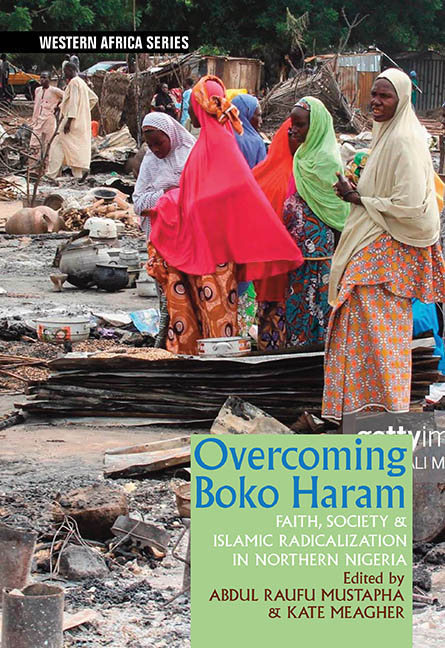Book contents
2 - The roles of the Ulama in radicalization & counter-radicalization
Published online by Cambridge University Press: 21 March 2020
Summary
Introduction
This chapter focuses on the religious dimensions of radicalization. More specifically, the chapter explores the roles of Muslim scholars known collectively as ulama – the plural of the Arabic term alim, which means the learned. The basic argument presented here is that the ulama can play active roles in promoting radicalization as well as counter-radicalization and deradicalization through the multiple roles they have historically played in Muslim societies. Over the last four decades, some Nigerian ulama have contributed to radicalization via four different but related mechanisms. First, they have created a climate of opinion in which individuals and social movements with radical tendencies have found in the discourses of the ulama the Islamic legitimation for their radical dispositions. Second, some ulama have also contributed to radicalization by creating division and raising tension among Muslims through polemical exchanges on religious beliefs and practices as well as social and political issues. Third, some ulama have contributed to radicalization through constructions of Muslim victimhood, often articulated in far-fetched conspiracy theories that provoke resentment and urge Muslims to react against the supposed conspirators. Fourth, some ulama have contributed to radicalization by ridiculing and demonizing their perceived enemies, including fellow Muslims who do not share their views. Demonization of the Other can provide a justification for physical violence.
But it is important to offer some caveats. The ulama are not a monolithic entity but a heterogeneous group with many significant differences that will be highlighted in the following pages. The majority of the ulama have not contributed to radicalization – indeed they can serve as important sources of counter-radicalization. The expression ‘some ulama’ has been repeated above to underscore the need to examine the specific factors that lead to radicalization. There is diversity in the motives, modes of operation, intensity and frequency in contributions of the individual ulama towards radicalization. Furthermore, the ulama are not the sole creators of radicalization in Nigeria. Other social groups, especially religious extremists, ethnic chauvinists, politicians, and journalists have also played their own parts. Despite the focus on the ulama, this chapter will be attentive to the interactions among the several factors that have collectively contributed to radicalization in Nigeria.
- Type
- Chapter
- Information
- Overcoming Boko HaramFaith, Society and Islamic Radicalization in Northern Nigeria, pp. 33 - 63Publisher: Boydell & BrewerPrint publication year: 2020



